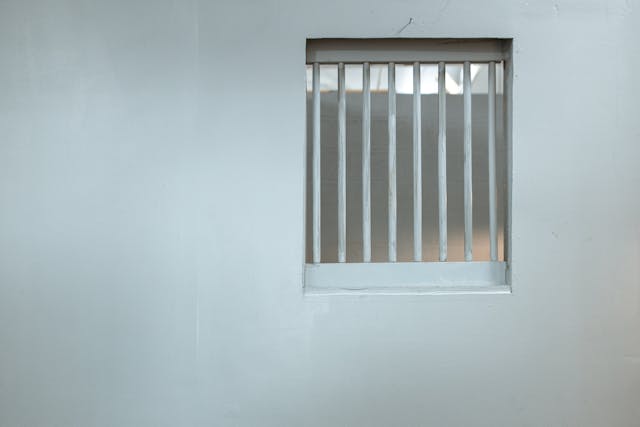Home » News » 2025 » February
News Brief
Feb. 18, 2025 |
By: Clara Bates - Missouri Independent
Missouri lawmakers raise concerns about long waits in jail for court-ordered mental health care

By Clara Bates - Missouri Independent
Leaders of Missouri’s public defender system urged lawmakers on Monday to take action to reduce the growing number of people languishing in jails across the state who are in need of mental health treatment.
As of last month, 418 people were in Missouri jails waiting to be transferred to a state mental health bed, up from around 300 at this time last year. The average wait time was 14 months, with some held longer than the maximum sentence for the crime for which they were charged.
These are Missourians who were arrested but found incompetent to stand trial and ordered into treatment designed to restore their ability to have their day in court. Competency restoration generally includes medication treatment and therapy.
The Missouri House Health and Mental Health Committee spent most of an informational hearing Monday addressing the Department of Mental Health’s competency restoration program, with a presentation by Mary Fox, the director of the Missouri State Public Defender system, and Annie Legomsky, who runs the state public defense system’s holistic defense services program.
“When somebody sits in a jail unmedicated and uncared for,” Fox said, “their mental health can get worse and so bad that they can never be cured.”
Legomsky and Fox urged changes to state law to increase court referrals to community-based treatment, instead of holding those charged with nonviolent, low-level offenses in jail for months.
“If we could figure out a way to take care of more of these folks in the community,” Fox said,”we’re not only saving the state money in the competence restoration process, but we’re setting them up for success when they return to the community.”
The state can’t create beds overnight, Fox said.
“And until we can either create the community restoration and let folks receive the treatment that way or create the beds, we don’t have a quick solution to the problem,” she said.
Many of the public defender’s office’s clients who are found incompetent have schizophrenia, intellectual disabilities or are on the autism spectrum, Fox said.
The legislature in 2023 passed a law giving the department the authority to provide treatment on an outpatient basis if the person could be safely released and wasn’t charged with a dangerous felony. But the department told The Independent last month that only two people have participated in the program so far.
The state also passed a law giving the department of mental health the ability to treat people within jails. The programs have been slow to get up and running, and three counties are in their early days of getting the programs started, the department told The Independent.
Legomsky said Monday that solution is “not ideal” since “the jail is not a therapeutic environment.”
The hearing was designed to inform lawmakers, not to discuss any particular legislation.
Several of the legislators serving on the committee expressed concern with the waitlist.
“We just don’t have enough beds, that’s the answer,” said state Rep. David Dolan, a Republican of Sikeston “We don’t have enough beds, and restoration within county jails is very hit and miss.”
State Rep. Tony Harbison, a Republican of Arcadia, said small counties are footing the bill, since counties are responsible for paying for jail stays.
“Fourteen months — we’re already spending a lot of money,” he said.
Legomsky estimated that the state would save around $480 in savings per day to do community-based competency restoration as opposed to the hospital setting, not to mention the cost savings for counties currently housing those individuals in jails.
One client, Fox said, was a 78-year-old woman with dementia who tossed lit matches in a laundromat waste basket — but was held in jail for a year, waiting for a mental health bed.
State Rep. Jo Doll, a Democrat of St. Louis, responded: “Where’s the common sense part of that? How does someone, how do you all these people see this person day after day and let someone sit there for a year?”
A handful of lawmakers asked about the potential for a public-private partnership, and whether private hospitals could be included. The public defenders said that would be a question for the department of mental health.
Others asked about states that do things better. Legomsky said Washington state limits the wait time to 14 days, and recommended time limits be established in Missouri statute.
“Even closer to 30 days would be a huge improvement over 14 months,” she said.
Other recommendations included increasing funding for community crisis care, housing and substance use disorder treatment — wraparound services to help people become competent and remain healthy, Legomsky said. The state could also make community-based treatment the presumption for those charged with low-level, nonviolent offenses. She said the public defenders estimate around 80% of those on the waitlist are charged with low-level, nonviolent offenses, and could be treated on an outpatient basis.
“We’re on the same side as the prosecutors, the sheriffs, the courts,” Legomsky said. “I think we all just want to find a solution.”
![]()






